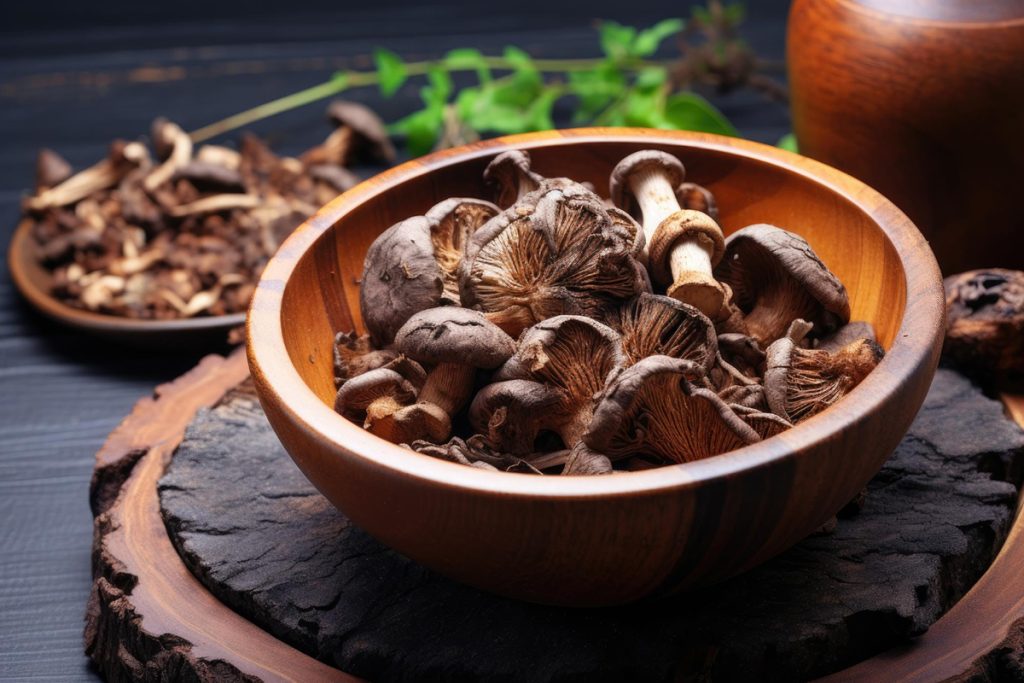Promote heart health by adding more mushrooms into your diet

While some risk factors for heart disease, such as your family history, are beyond your control, you can actively modify lifestyle-related factors to potentially reduce your risk of developing heart disease.
One highly beneficial action you can take to improve your heart health is evaluating your dietary choices. Surprisingly, the unassuming mushroom boasts distinct nutritional advantages that make it an excellent addition to a heart healthy eating plan.
Prioritizing a diet that fosters heart health holds significant importance for several reasons, chiefly because heart disease continues to rank among the leading global causes of mortality. Fortunately, adopting a heart healthy diet doesn’t have to equate to dull or monotonous meals.
Incorporating wholesome foods like mushrooms into your diet may contribute to the support of your cardiovascular well-being. Here are four compelling reasons to include more mushrooms in your diet if you are aiming to promote your cardiovascular health.

Ergothioneine: A distinctive antioxidant
One of the most intriguing aspects of mushrooms lies in their amino acid composition. Mushrooms stand out as a prominent dietary source of an amino acid known for its antioxidant and anti-inflammatory properties: ergothioneine.
While most mushrooms contain this amino acid, varieties such as king oyster, maitake, oyster, and shiitake are among those renowned for their notably high ergothioneine content. Ergothioneine has been associated with reduced triglyceride levels and a potential role in preventing the formation of arterial plaque, a significant contributor to heart disease.
A study has established a direct correlation between dietary intake of ergothioneine and improved cardiovascular function. Furthermore, elevated levels of ergothioneine in the bloodstream may serve as an indicator of a diminished risk of premature mortality related to heart and vascular diseases.

Fiber
Mushrooms possess two distinct types of fiber: insoluble fiber, which does not dissolve in water, and soluble fiber, which readily dissolves in water. While both forms of fiber are essential, soluble fiber stands out for its potential heart health advantages.
Within mushrooms, you can find a particular type of soluble fiber called beta-glucan. When ingested, beta-glucan transforms into a gel-like substance within the gastrointestinal tract. This gel has the remarkable ability to ‘capture’ cholesterol and triglycerides, preventing their absorption by the body during the digestion process. Consequently, this mechanism contributes to the reduction of blood cholesterol levels.

Vitamin D
A significant number of individuals experience inadequate vitamin D levels, and this deficiency is associated with a range of cardiovascular issues, including coronary artery disease, heart failure, and atrial fibrillation.
There are limited natural dietary sources of vitamin D, but mushrooms stand out in this regard. All mushrooms naturally contain a certain amount of vitamin D, and specific varieties are even deliberately cultivated with additional exposure to UV light to enhance their vitamin D content.

How to eat more mushrooms
Mushrooms not only boast essential nutrients like niacin, riboflavin, and vitamin D but also offer remarkable culinary versatility due to their ability to impart a rich umami flavor.
Here are some suggestions for incorporating more mushrooms into your diet:
- Sauté mushrooms in olive oil and onions. Sprinkle with chili powder and cumin in the final moments of cooking. Remove from heat, drizzle with fresh lime juice, and serve inside a warmed corn tortilla with chopped cilantro and a touch of cotija cheese.
- Create a dressing using red wine vinegar, olive oil, minced garlic, salt, and pepper. Add quartered mushrooms and toss them in the dressing. Allow them to marinate for 30 minutes before serving atop whole-grain toast.
- Quarter the mushrooms and toss them with balsamic vinegar, extra virgin olive oil, salt, and pepper. Roast them and then toss with fresh thyme for a flavorful twist.

Promote heart health by adding more mushrooms into your diet conclusion
Mushrooms provide distinct heart health advantages that render them a valuable inclusion in a heart-friendly eating regimen. They can be relished either as a standalone dish or incorporated into salads and sandwiches.




















